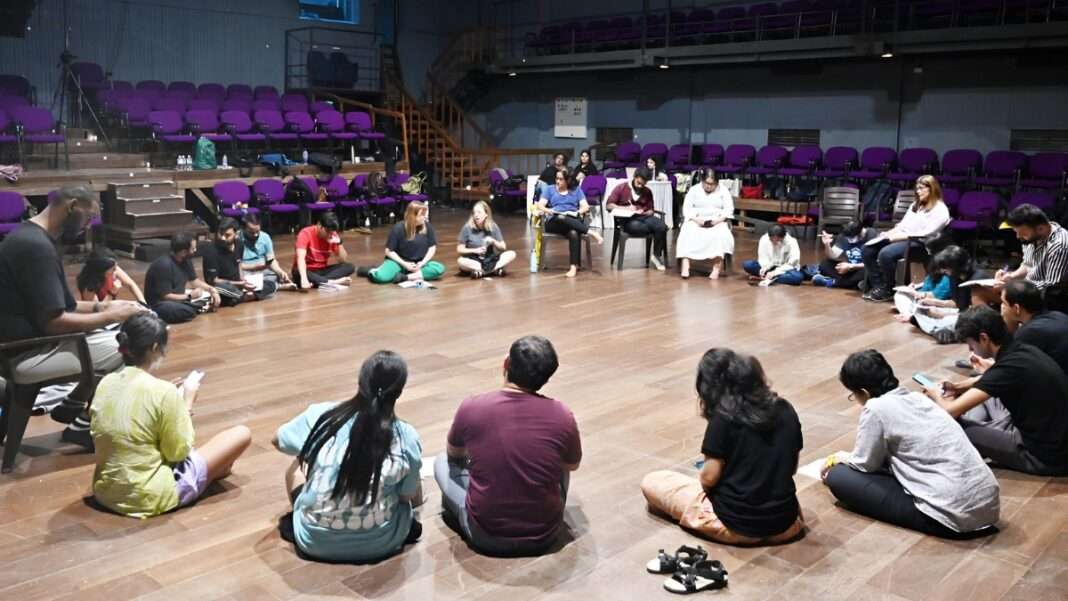New Delhi [India], January 17: As concerns about water scarcity grow across the globe, the role of plumbing in promoting sustainability has become increasingly significant. Gurmit Singh Arora, National President of the Indian Plumbing Association (IPA), believes that sustainable plumbing is not just a trend but a necessity for a future where clean water is accessible to all. In this article, we explore how innovative plumbing solutions are driving water conservation, the latest methods being adopted, and future trends shaping the industry.
Water Conservation: A Growing Need in Every Home
Water is one of the most precious natural resources, and conserving it has become a priority for both governments and individuals. With cities expanding and populations increasing, the demand for water is at an all-time high. Residential areas account for a significant portion of water consumption, making it essential to implement water-saving techniques at the household level.
Gurmit Singh Arora emphasizes that homeowners can contribute to water conservation by adopting simple yet effective practices, such as:
- Installing water-efficient faucets and showerheads.
- Using dual-flush toilets to reduce water usage per flush.
- Repairing leaks promptly to prevent water wastage.
- Harvesting rainwater for non-potable purposes like gardening and cleaning.
These small steps, when taken collectively by millions of households, can result in significant water savings and help combat water scarcity.
Sustainable Plumbing Methods and Technologies
Plumbing has evolved beyond just connecting pipes and ensuring water flow. Today, it encompasses advanced methods and technologies aimed at optimizing water usage. Below are some of the key sustainable plumbing solutions being adopted:
1. Low-Flow Fixtures: Low-flow faucets, showerheads, and toilets are designed to reduce water consumption without compromising performance. They use air mixing technology to maintain water pressure while minimizing flow.
2. Greywater Recycling Systems: Greywater systems collect water from showers, sinks, and washing machines, treat it, and reuse it for purposes like flushing toilets and irrigation. This significantly reduces the demand for fresh water.
3. Smart Plumbing Systems: IoT-enabled plumbing systems are gaining popularity for their ability to monitor water usage in real-time, detect leaks, and provide actionable insights on how to reduce consumption. These systems can be controlled via mobile apps, giving users more control over their water usage.
4. Rainwater Harvesting Systems: Rainwater harvesting is an age-old technique that has been modernized with advanced filtration and storage solutions. Homes equipped with rainwater harvesting systems can reduce their dependence on municipal water supplies.
Water Audits: A Crucial Step Towards Efficient Water Use
As part of the broader effort to conserve water, one of the most effective tools that homeowners and businesses alike can implement is a water audit. A water audit is an assessment that helps identify areas where water is being wasted and provides solutions to optimize usage. By conducting regular water audits, properties can not only reduce their water bills but also contribute significantly to environmental sustainability.
Gurmit Singh Arora underscores the importance of water audits as a proactive approach to identifying inefficiencies in water usage. Whether it’s a leaky faucet or an overuse of water in landscaping, audits provide insights into potential improvements. Specialized professionals often carry out these audits, offering tailored recommendations based on real-time data and usage patterns. As technology evolves, smart water meters and AI-powered systems are being integrated into audits to provide even more accurate readings, helping individuals and businesses track their water consumption in a more streamlined manner.
Incorporating water audits into regular maintenance practices allows for continuous monitoring of water use, helping to further refine sustainability efforts.
Emerging Plumbing Trends for the Future
With technological advancements and growing environmental consciousness, the plumbing industry is witnessing a shift toward more sustainable practices. Here are some trends that are likely to dominate the future:
1. Water-Efficient Building Designs: Architects and builders are increasingly collaborating with plumbing experts to design buildings that are inherently water-efficient. This includes integrating greywater recycling, rainwater harvesting, and low-flow fixtures into the design phase itself.
2. Net-Zero Water Buildings: Net-zero water buildings are designed to collect, treat, and reuse water on-site, resulting in minimal to zero dependence on external water sources. These buildings utilize advanced plumbing systems to achieve maximum efficiency.
3. Green Certifications for Plumbing: As sustainability becomes a key focus, green are setting standards for green plumbing practices. These certifications not only promote sustainable solutions but also add value to properties.
4. Advanced Leak Detection Systems: Undetected leaks can lead to massive water wastage. In the coming years, we can expect more widespread adoption of AI-driven leak detection systems that not only identify leaks but also predict potential failures.
5. Use of Sustainable Materials: Plumbing systems of the future will increasingly use sustainable and non-toxic materials. Pipes, fittings, and fixtures made from recycled or biodegradable materials will help reduce the environmental impact of plumbing installations.
Towards a Green Future: The Role of IPA
Under the leadership of Gurmit Singh Arora, the Indian Plumbing Association (IPA) has been actively promoting sustainable plumbing practices across the country. The association has launched several initiatives aimed at raising awareness about water conservation and the need for eco-friendly plumbing solutions. IPA’s programs include workshops and conferences for plumbing and water professions, homeowners, and builders to educate them on the latest trends in water-efficient plumbing.
Mr. Arora believes that collaboration is key to a sustainable future. He urges policymakers, industry leaders, and citizens to work together to create an ecosystem that supports water conservation. “By adopting smart plumbing solutions and sustainable practices, we can not only save water but also reduce energy consumption and lower our carbon footprint,” he says.
IPA Neerathon: IPA’s Commitment to Water Conservation
In line with its mission to promote sustainable water practices, the Indian Plumbing Association (IPA) has initiated IPA Neerathon, a run for water aimed at raising awareness about water conservation. This marathon brings together citizens, policymakers, and corporate partners, creating a platform for dialogue and action on one of the most pressing environmental challenges of our time. Till date 4 such events have been held across various cities including New Delhi, Chennai, Ahmedabad and Bengaluru.
The future of plumbing lies in sustainability. As Gurmit Singh Arora and the Indian Plumbing Association continue to advocate for innovative and eco-friendly solutions, the industry is poised for a transformation that will benefit both people and the planet. By embracing water-efficient technologies and sustainable practices, we can ensure that future generations inherit a world where clean water is abundant and accessible.
In the words of Mr. Arora, “Every drop counts. Let us make every effort to conserve water and build a greener tomorrow.”
If you have any objection to this press release content, kindly contact pr.error.rectification@gmail.com to notify us. We will respond and rectify the situation in the next 24 hours.
Views: 1

